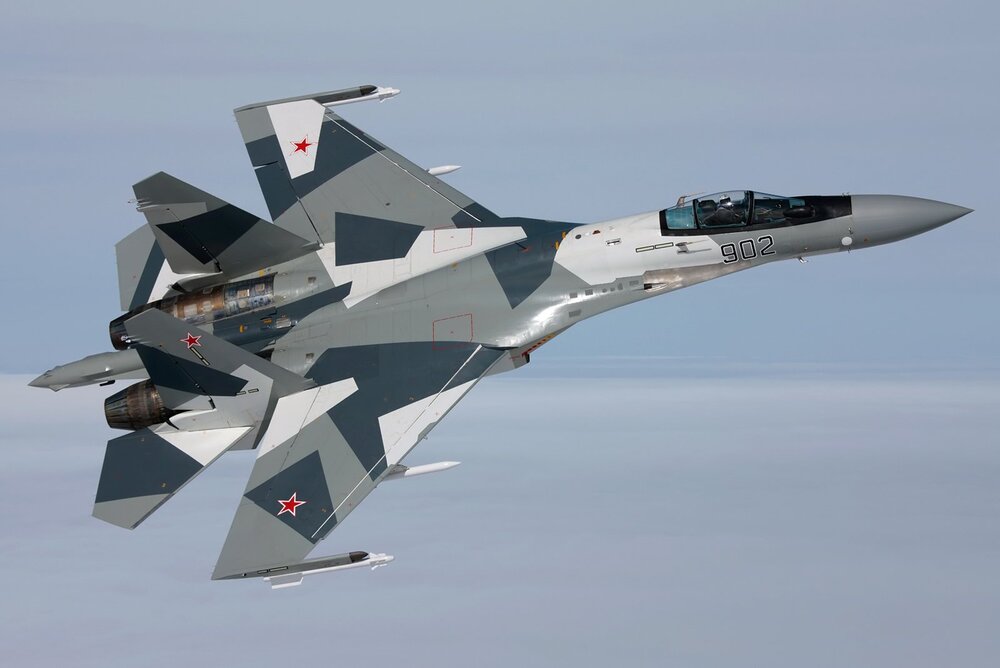Russia set to supply Iran with Su-35 fighter jets ‘in near future’

TEHRAN- The Islamic Republic of Iran will soon receive a full squadron of Sukhoi Su-35 fighter planes from Russia, a move that is certain to further enrage the West as Tehran and Moscow strengthen their defense and economic collaboration in defiance of broad sanctions and draconian measures.
According to media sources quoting military specialists, Iran will soon get 24 of the fourth-generation twin-engine, super-maneuverable fighter jets that are mostly used for air dominance missions.
Some of the combat aircraft are anticipated to be housed at TAB 8 of the Islamic Republic of Iran Air Force (IRIAF), which is located in the Iranian city of Isfahan in the country's center.
Based on Russia's United Aircraft Corporation (UAC), the Sukhoi Su-35 fighter jet “combines the qualities of a modern fighter (super-maneuverability, superior active and passive acquisition aids, high supersonic speed and long range, capability of managing battle group actions, etc.) and a good tactical airplane (wide range of weapons that can be carried, modern multi-channel electronic warfare system, reduced radar signature, and high combat survivability).”
With the exception of a few Russian MiG-29 Fulcrum fighters it purchased in the 1990s, Iran hasn't purchased any new fighter aircraft in recent years.
In addition to the MiG-29, the IRIAF primarily utilizes locally modified F-4 Phantom II, F-14 Tomcat, and F-5E/F Tiger II aircraft from the 1970s that were sent to the overthrown, U.S.-backed Pahlavi regime prior to the 1979 Islamic Revolution.
Significant agreements between Iran and Russia have been made in recent months to expand their economic, trade, energy, and military cooperation.
After Washington unilaterally pulled out from the 2015 nuclear agreement, officially known as the Joint Comprehensive Plan of Action (JCPOA), Iran fell under an all-encompassing regime of American sanctions in 2018.
After Moscow began a military campaign in Ukraine in February, the United States and its allies slapped a number of identical and even more severe sanctions on Russia.
Experts believe that U.S. sanctions did not succeed in achieving its primary goal of compelling Iran to make significant political and military concessions.
They assert that the restrictions even gave Iran the chance to reduce reliance on oil incomes, adopt a resistance economy and focus more on its own talents.
Vladimir Putin, the President of Russia, said earlier this year at an economic symposium in Vladivostok that Moscow had benefited from Western sanctions because they had given it greater opportunity to join West Asia and Iranian markets.
Leave a Comment